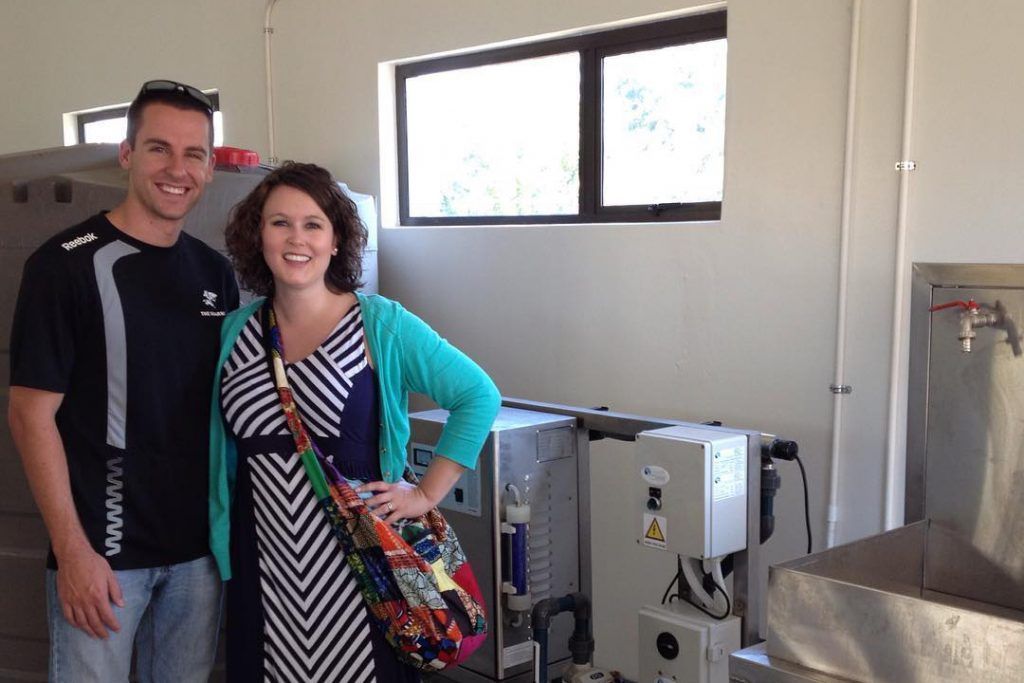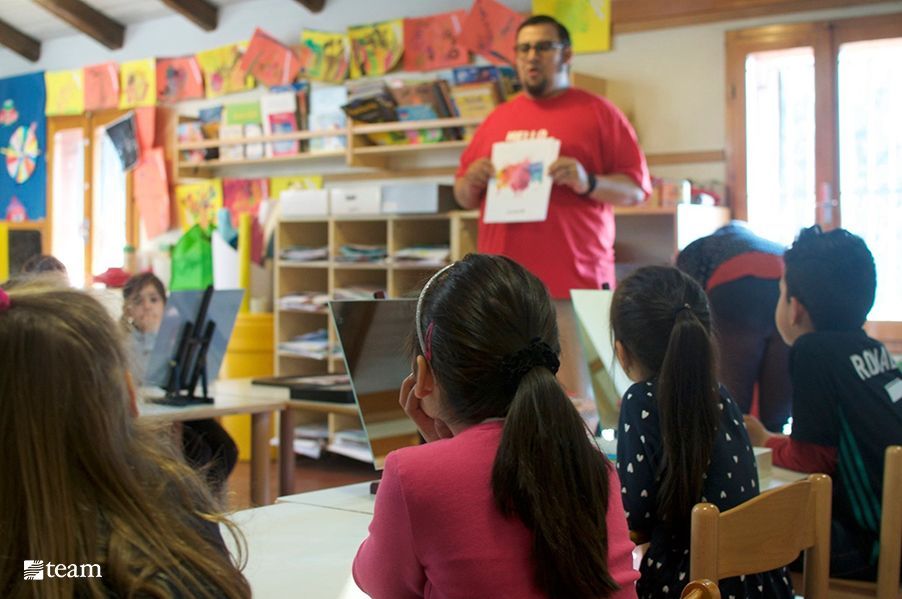“Why don’t you have HIV?”
“Why do we have HIV if we haven’t had sex?”
“Why don’t we see our parents on holidays?”
These aren’t questions a typical engineer deals with during work. But for Brett Richstone, a TEAM missionary and water bottling plant manager, nothing about the last few years has been typical.
He starts his day with factory maintenance, applying for licenses or filling orders for fresh spring water. But by the afternoon, he’s leading a Bible study, buying groceries for an entire village and having heart-to-heart conversations with children affected by HIV and AIDS.
It all began in 2013, when Brett and his wife, Kara, started praying about moving overseas.
An engineer and a marketer, respectively, they thought God would give them professional jobs abroad. But as they prayed, Kara kept thinking of Rehoboth Children’s Village in South Africa.
She had visited it on a mission trip in 2009 and was struck by the hope she saw there.
“Their whole goal is to give [HIV-affected children] a future, … to give them a proper education, to let them be leaders and thought-changers in society,” Kara says.
Four years later, she decided to look up Rehoboth and was stunned at what she saw:
They were opening a water-bottling plant to help the ministry support itself. They needed an engineer to run the plant and a marketer to sell its product.
They needed Brett and Kara.
A Spirit of Abandonment

Rehoboth strives to provide family-style homes for children orphaned by the HIV epidemic. Photo courtesy of Rehoboth Children’s Village
When the Richstones came to South Africa, they stepped into the biggest HIV epidemic in the world, with just over 2 million children orphaned by the virus. Others aren’t orphaned but are abandoned or given up because their parents can’t care for them.
Rehoboth’s goal is to give these kids a stable upbringing through family-style homes, personalized health and education plans, and spiritual guidance.
WATCH: Learn more about Brett and Kara’s journey to Rehoboth Children’s Village!
“Building relationships is one of the hardest things with our kids because they really have trouble with attachment. … They have that spirit of abandonment,” Kara says.
She saw this firsthand when she started a Bible study with the teenage girls.
For months, she got nothing but blank stares during discussion times. And when the girls did start opening up, Kara could see they were testing her.
“News in the village travels fast, so they would tell me things and see if they heard about it from someone else later. … I needed to prove myself to them, essentially, that I was trustworthy,” Kara says.
Each day, the Richstones split their time between factory duties and more relational activities that build up that trust, such as Bible studies, one-on-one counseling, homework help and organized sports.

In addition to his engineering work at the factory, Brett works to build trust with the kids through activities like soccer. Photo courtesy of Brett and Kara Richstone
So many people have come in and out of the children’s lives that they’ve learned to keep relationships on a surface level. But with persistent friendship-building, Kara and Brett have seen walls come down.
Some of the deepest moments for Brett come simply while driving boys to running club or doctor appointments.
That’s when boys feel safe to ask about HIV or why they never see their families.
“They’re hard questions I don’t have good answers to most of the time,” Brett says, “but it does make me glad I’m here, that I can at least help them talk through it. … Tell them that God loves them and I love them.”
As Brett and Kara watch the kids open up and mature, they hope the water bottling plant will also be a tool to help them grow even more.
A Hopeful Future

Brett and Kara, posing in the water bottling plant, hope the project’s impact returns more than just funds. Photo courtesy of Brett and Kara Richstone
The water bottling plant is not just about money.
In South Africa’s economy, with a 27 percent unemployment rate, finding a job can be incredibly difficult for aged-out orphans. But if teenagers can work at the plant , they’ll enter adulthood with a resume.
“If they want to leave Rehoboth and go somewhere else to find a job, they can use that as a reference,” Brett says. “And that holds a lot of value in this economy.”
When the factory got its first big order for a Christmas market, Brett decided to ask the boys from his Bible study to help.
The boys started out hastily, trying to set records for how fast they could go. But as Brett taught them about quality control, the boys took ownership of the project.
“It was cool just to see the excitement grow, … like, ‘This is our business, and we’re gonna make this much money if we sell this many bottles,’” Brett says.
Each night, when Brett came back from the market, the boys would ask him about their profits.
“The best part of the experience was when the boys heard that over 900 bottles of water had been sold,” Brett says. “The joy they expressed knowing they had produced something others wanted to buy … was so exciting.”
As the factory continues, Brett and Kara hope many more orphans will experience that empowerment and see a hopeful path for their future. In the meantime, they’ll keep building trust and pointing kids to the same God who led them on this unexpected adventure.




















